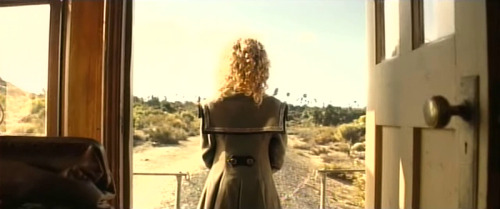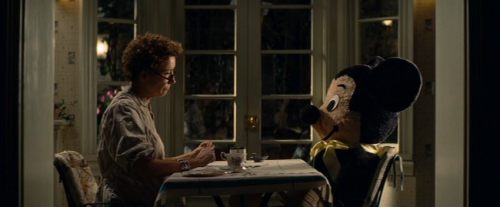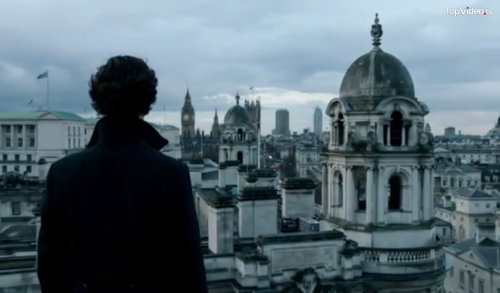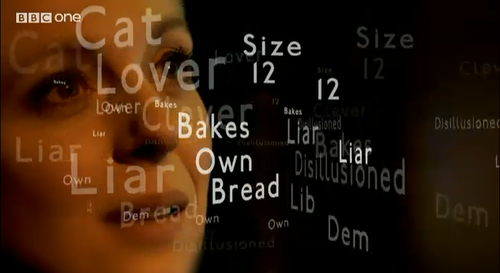 As some of you might know, I’m in my second year of studying Japanese
at university. I was first really introduced to Japanese culture by my brother
when I was in middle school and have continued to follow it on and off since
then. Since a lot of the elders in my family are fluent in Japanese, I thought
I would use the Foreign Language requirement here to really learn the language.
Because I had some extra time over break, I decided to take the plunge and do
something a little bit out of the ordinary: watch an anime.
As some of you might know, I’m in my second year of studying Japanese
at university. I was first really introduced to Japanese culture by my brother
when I was in middle school and have continued to follow it on and off since
then. Since a lot of the elders in my family are fluent in Japanese, I thought
I would use the Foreign Language requirement here to really learn the language.
Because I had some extra time over break, I decided to take the plunge and do
something a little bit out of the ordinary: watch an anime.
When I first really got into researching Japanese
media, it was mainly the live action dramas and J-pop music rather than the
anime series. My knowledge of Japanese animation mainly consists of Studio Ghibli
films, which are not really quite different. I think I watched a couple
bishonen animes back in high school under pressure but I just didn’t find them
all that interesting. So this was my first really genuine attempt at watching
an anime on my own.
That being said, I decided to give animes another shot and since three
separate people had recommended that I watch Ouran Highschool Host Club (桜蘭高校ホスト部), I
decided to give it shot. Besides, watching the series in Japanese with English
subtitles would help me improve my Japanese while killing some time; win-win!
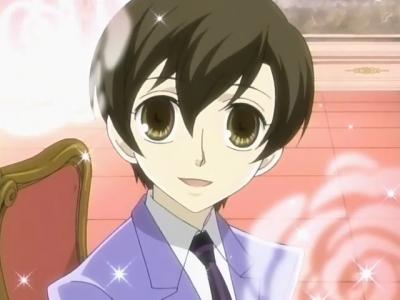 |
| Haruhi: All the androgyny. |
To set the stage, Ouran is a satirical anime
set in a fictitious high school. It chronicles the doings of a “host club” in which incredibly wealthy male high school students entertain their female
counterparts. A female “honor” student
Haruhi is initiated into the group after breaking a very expensive Ming Dynasty
vase. Haruhi is a "commoner" who was accepted on scholarship. She works as a male host to pay off her debt and to make use of the fact
that she could (conveniently) pass as a guy. The premise of rich Japanese teenage guys basically doing whatever they felt like is a similar premise to Hana Yori Dango (花より男子), which was the first Japanese dorama that I ever watched.
The Host Club is comprised of seven members
aside from Haruhi, each of whom plays up a one thing about themselves in order
to establish a variety of “types” to please their “clients”.
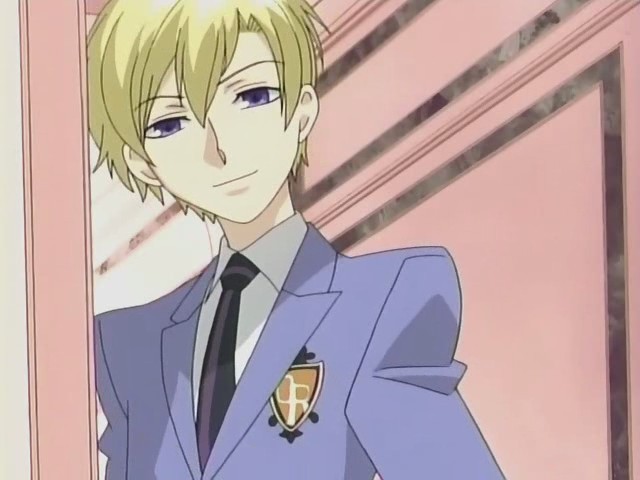 |
| Tamaki-senpai |
Tamaki Suoh is the leader of the group and the
only son of the school’s superintendent. He is cast as the “princely type” and
follows the bishonen aesthetic. Raised in France, he has silver blond hair, is
incredibly tall and thin and charms girls by using over the top romantic
gestures and words. He is a caricature of what storybook princes are supposed to be like and the main mastermind behind most of the Host Club’s
over-the-top themes. Although is very bubbly, cheerful and dramatic in the
anime, it is revealed that he had a rather unconventional childhood abroad and
the conditions under which he was brought to Japan were not ideal.Throughout
the series, he acts as Haruhi’s “father” within the club and is incredibly
protective of her. I think in the manga version of Ouran, they eventually get
married but the anime doesn’t get that far. They do acknowledge their feelings for one another but nothing really happens.
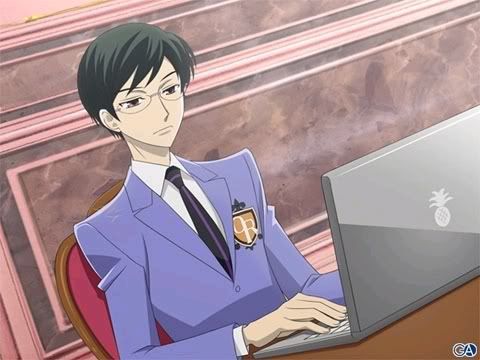 |
| Kyoya-senpai |
The ‘mother’ of the group is Kyoya Ootori. He
is cast at the “cool” type and he manages all of the accounts for the
club. He serves as Tamaki’s foil both in
terms of looks and personality. While Tamaki is the dreamer, Kyoya is the
planner. While Tamaki is gushes over his clients, Kyoya is more reserved and
humble. As the third son of the Ootori zaibatsu, he is unlikely to be the heir
to the family business and this is the main character issue that he struggles
with throughout the series. Kyoya senpai is shown to be incredibly calculating and always tries to be several steps ahead of the game. Out of all the hosts, he is the most independent from Tamaki and will usually find his own way to solve whatever situation it is that the club has found themselves in. He also is hyperaware of his need to keep dipomatic relationships with his fellow students, something that was impressed upon him by his strict father. Kyoya senpai often remarks how well connected the people he encounters are and seems to only be concerned with people who could potentially help his business. However, it is revealed though that he is much more kind and
generous than he initially appears.
 |
| Fred and George in anime form |
Next are the brothers Hikaru and Kaoru
Hitachiin, who frankly remind be vaguely of Fred and George Weasley. They often
come up with games to amuse themselves when they get bored with club activities
as well as playing pranks on other students. As identical twins, they capitalize
off of their ability to portray a caring and vaguely homoerotic (and incestuous
if we’re being technical) relationship to please their female clients. Once
they become friends with Haruhi, she is able to get to know them and is
subsequently able to tell one brother from the other. Before Hikaru and Kaoru
joined the host club no one could tell them apart and so the two kept to
themselves. As a result, they were the most reclusive of the club members prior
to being scouted by Tamaki. Indeed, Hikaru is still a bit abrasive at
times. However, they are both able to
become more sociable with Haruhi’s encouragement.
By far the most adorable of the hosts is Mitsukuni
Haninozuka, known affectionately as Honey-senpai. Even though he is the most
diminutive of all of the members, he is actually the oldest member. He is the
first to be openly affectionate to Haruhi and enjoys cakes and other sweets.
Honey-senpai is often seen with his pink bunny named Usa-chan. How fitting is
it then that he is the oldest son to a martial arts family and is indeed a
master himself? This disconnect is shown to be a sore point for his younger
brother who views Honey-senpai as unfit to be heir. Even though he looks
adorable, he is a very capable fighter and is absolutely ruthless should you
try to harm one of his friends.
 |
| Mori-senpai |
Last but not least is Takashi Morinozuka, Honey
senpai’s cousin. Takashi-kun is cast as the strong and silent type and is
constantly looking out for Honey senpai. I believe that in the manga version, Mori senpai also has romantic feelings for Haruhi but this isn't really explored very much in the anime. Mori senpai is mainly painted as loyal and stoic. He also is a skilled martial arts
practitioner. There is a nice fourth wall break during the episode that Mori-senpai takes an "apprentice" and the hosts remark that they don't really know what he does. Despite the fact that he doesn’t say much throughout the series, Mori-senpai has saved other
students on multiple occasions and is very well liked.
Now there are any number of things that I could
criticize the series for: the fetishization of homoerotic relationships, the
superficiality of all the female students, all the neglectful parents of the
hosts…but I’m not going to do that. This series is a satire and MEANT to be
over the top and ridiculous. Trying to hold Ouran as the standard for
portraying what it’s like to be a high schooler in Japan would be akin to
trying to convince ourselves that Gossip Girl is a realistic portrayal of
American High school life. Ouran is a story and as such I think it deserves a
bit of leeway.
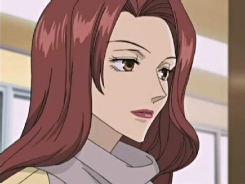 |
| This is Haruhi's dad. |
Moreover, I think that Ouran actually does
something interesting by portraying gender and sexuality in such a flexible
manner. While it’s definitely true that all the guys in the club are supposed
to fall in love with Haruhi, they always imagine her as being very cute rather
than hypersexualizing/reducing her. Also, homosexual relationships, while
mildly fetishized, don’t seem to carry the stigma that they often hold in
Western media. In a scene where Haruhi (dressed in male clothes) is
entertaining a male student, the other students are simply overwhelmed by how
cute the two “boys” are together rather than trying to make the two feel any
sort of shame. Another example is when the hosts meet Haruhi’s father, who
works as a professional cross-dresser. The boys, and more importantly Haruhi,
seem to take it in stride. And it's not because it's not because it doesn't matter but rather there are more important aspects to his
character that the writers wanted to emphasize. There were lots of different ways to show that Haruhi’s dad is an
ineffective parent-they could have made him depressed, a gambler, or a
drunkard. Instead they opted for a different route.
 |
| These are the Hitachiin brothers. |
Also there definitely seems to be a freedom of
expression with the sheer amount of cross-dressing. The twins are shown to have
been cross-dressing since their childhood, Haruhi cross dresses on a daily
basis and in one episode, the hosts cross dress in an attempt to discourage
Haruhi from transferring schools. Cross dressing is just so ubiquitous in this series that it kind of just loses the shock factor. And the same comment above still stands-it's not that we're supposed to think that this isn't substantial. There are just bigger things to worry about, more important plot points to make.
In terms of romance, Ouran is really quite tame by Western standards. Even though the job of the hosts is to "make the girls happy", the plot mainly just plays with lots of unrequited love. Three of the members fall in love with Haruhi but no one really acts upon it. Mostly there's just longing gazes at the person of interest and other ways to show affection. There's only scene where there was the potential for things to go further but it is incredibly obvious that it is not going anywhere and that situation is diffused in under 20 seconds.
 |
| I question this creative decision. |
I will say that the portrayal of the Lobelia
Academy students is a little bit problematic for me. Lobelia Academy is an
all-female high school and an elite group of performers takes an interest in
Haruhi, recognizing her immediately to be a female despite her attire. Perhaps
this is just sensitivity as I currently attend a historically all-womens’
institution, but the Lobelia students didn’t really come off as liberated they
just seemed militant. I don’t think this portrayal is particularly helpful from
a Western perspective but I know that there are many all-women’s high schools
and colleges in Japan so the breadth of the satire might be more widely
received than it would be for a Western audience.
Even though I think it’s unlikely that I’ll be
watching more animes, I found Ouran Highschool Host Club to be well-paced and
wildly entertaining. I've noticed that watching a lot of media that is set in highschools has become a little difficult as a college junior, soon to be senior. I distinctly remember highschool being exponentially less exciting and fun than these shows would make it seem so I was worried that Ouran would come across as stale. However, Ouran was actually quite enjoyable in its ridiculousness, though watching Hana Yori Dango definitely helped to prep me. Ouran Highschool Host Club did exactly what it was supposed to though, allowing the
viewer to escape into a completely different world, if only for 25 minute
increments.
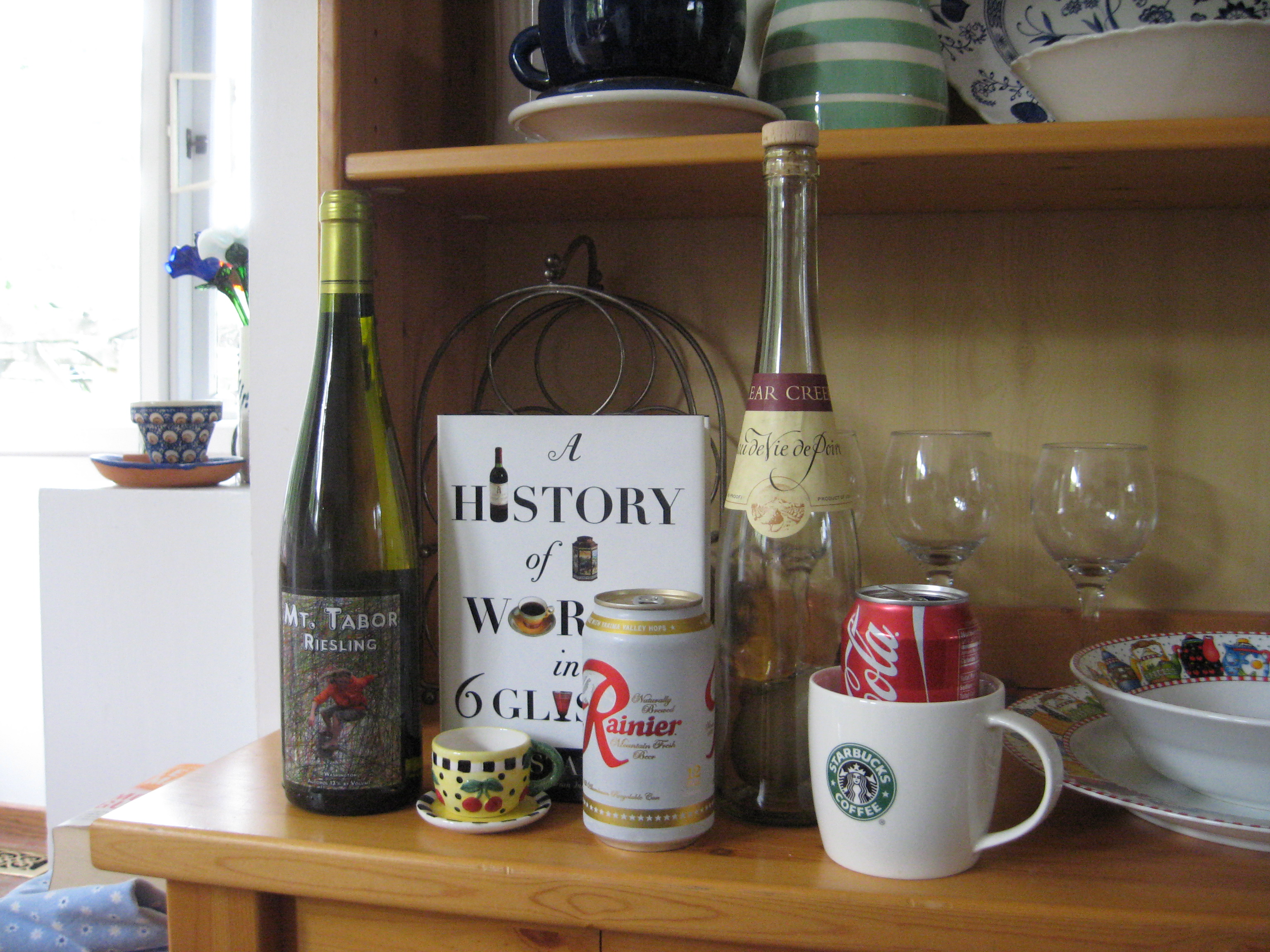 A couple weeks ago I made the pseudo-resolution of trying to read more books in 2014 and I decided to kick off the year with Tom Standage's "A History of the World in 6 Glasses". The book outlines six different types of drinks that have featured prominently throughout history. They are beer, wine, spirits, coffee, tea and Coca Cola. The underlying premise of the book is that these drinks have had medicinal, political, religious and societal influence far beyond what drinks are for: becoming less thirsty. The actual text of the book is 274 pages long.
A couple weeks ago I made the pseudo-resolution of trying to read more books in 2014 and I decided to kick off the year with Tom Standage's "A History of the World in 6 Glasses". The book outlines six different types of drinks that have featured prominently throughout history. They are beer, wine, spirits, coffee, tea and Coca Cola. The underlying premise of the book is that these drinks have had medicinal, political, religious and societal influence far beyond what drinks are for: becoming less thirsty. The actual text of the book is 274 pages long. 









